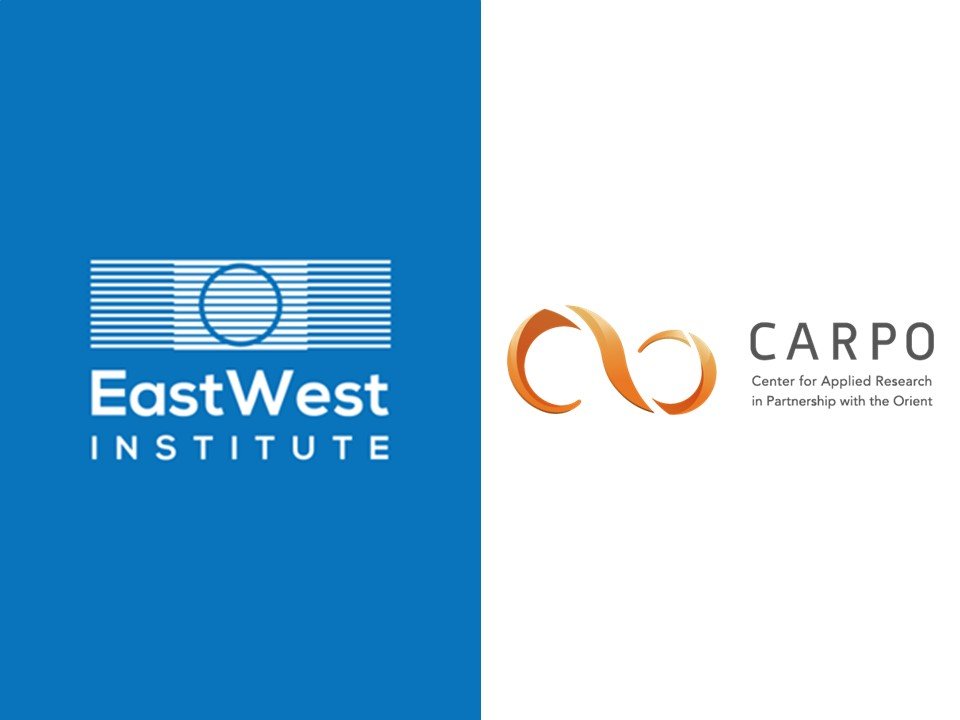
April 8, 2020
On April 8, the EastWest Institute (EWI) and the Center for Applied Research in Partnership with the Orient (CARPO), hosted the second “Brussels MENA Briefing,” a series of after-work briefings on the MENA region, this time focusing on Oman in the post-Sultan Qaboos era. Invited speakers were Dr. Yousuf Hamed al Balushi, CEO of Smart Investment Gateway and Dr. Cinzia Bianco, Visiting Fellow on Europe and the Gulf at the European Council on Foreign Relations and Senior Analyst at Gulf States Analytics. The Briefing was held online due to the COVID-19 pandemic, and moderated by Kawa Hassan, EWI’s Vice President of the Middle East and North Africa program.
Under the late Sultan Qaboos bin Sa’id al-Sa’id, who ruled Oman for 49 years, the country maintained good relations with regional and international powers, including Iran, Saudi Arabia, as well as the United States and Israel. It has always been seen as a beacon of neutrality in a turbulent Middle East. It used its position of neutrality to mediate several conflicts in the Gulf region, among backchannel dialogues between the U.S. and Iran, which ultimately led to the historic nuclear deal (JCPOA), sealed by the EU/E3+3 and Iran.
Oman’s new Sultan, Haitham bin Tariq al-Said, pledged to maintain peaceful relations with its neighbors and international powers. However, as our briefing highlighted, internal and external challenges, in addition to the economic impacts of the COVID-19 pandemic and the current drop in oil prices, beg the question of how long Oman can retain its neutrality and remain resilient to the polarization and fragmentation of the region. In this respect, it was suggested that Oman can benefit greatly from Foreign Direct Investment (FDI) to develop its technical and financial knowledge.
While Oman’s economy has significantly progressed in the past decades, reliance on oil revenues, the threat of the „Dutch Disease“ and a dependence on imports for consumption have forced the country to reform its economy and explore alternative avenues of financial investment, such as developing the private sector by creating jobs in strategic sectors such as tourism and fisheries. The Oman Vision 2040 aims to diversify the economy away from overreliance on oil revenues by becoming an attractive and competitive destination for FDI.
It was argued by both speakers that the fact that the political succession from Sultan Qaboos to Sultan Haitham went smoothly indicates the resilience of the political system. At the same time, the financial vulnerability of the Sultanate has strongly increased. Oman’s discrete engagement in backchannel diplomacy stands unique in a region that does not possess regional conflict resolution mechanisms. The U.S. withdrawal from the JCPOA led to deep disappointment in Muscat. There was hope that an economically-strengthened Iran would become an important trade partner of the Sultanate. Instead, it took the blame for what the Trump administration and its regional allies called a “historic mistake.” It was highlighted during the briefing that Omani officials have started asking themselves what will be the cost of maintaining neutrality if they end up being torpedoed by other players. Oman’s geographical position furthermore exposes it to potential spill-overs from neighboring conflicts, such as the war in Yemen. This political and geographical context makes it increasingly challenging for Oman to remain neutral.
Desirée Custers, MENA Briefing